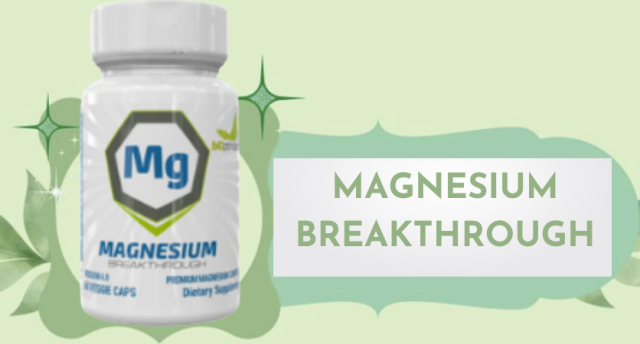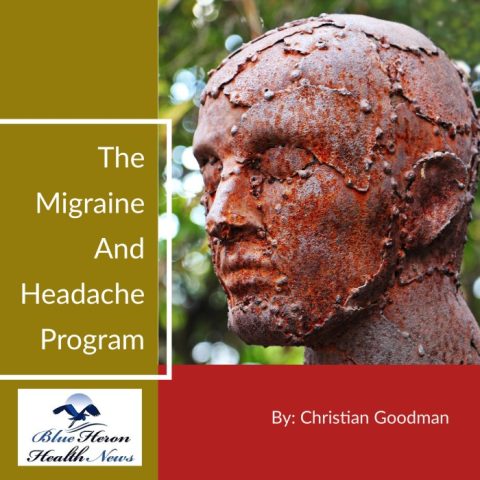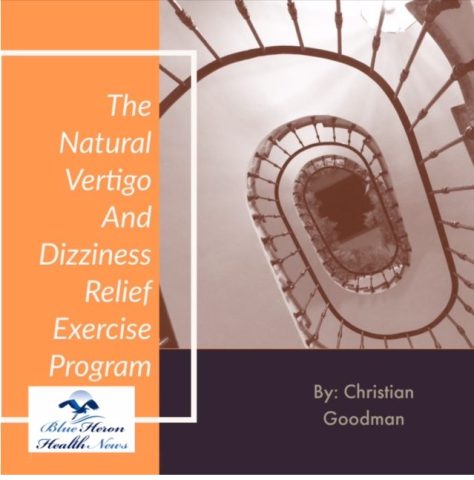2 Different Types of Headaches According To A Neurologist
By Vanessa Richards
January 10, 2024 • Fact checked by Dumb Little Man

Headaches are a fairly common medical problem, and the vast majority of individuals will suffer from at least one throughout their life. Some of them might need immediate medical attention. However, others might relieve with an OTC medicine.
A headache is a kind of pain that may be felt in either the head or the face. It can be characterized as either throbbing pain, persistent, severe, or mild pressure.
The nature of the pain, its intensity, its location, and its frequency might vary widely from one person to the next.
Although most of them are harmless, certain types of headaches may indicate a more severe health problem.
2 Major Types of Headaches

There are many types of headaches, each of which is characterized by a unique combination of signs and symptoms. The majority of them don't last long and are seldom a reason for worry.
However, being able to identify the specific kind of headache that one is suffering from may help a person choose the most effective treatment for it as well as whether or not they should see a medical professional.
The main types of headaches include primary headaches and secondary headaches. The causes will determine which type of headache pain you have. Let's find out more about them.
1. Primary Headaches
When the pain-sensitive structures in your head aren't functioning correctly or are overactive, you get a primary headache. There is no underlying medical problem that would cause or be symptomatic of this sort of headache. As a result, it's possible you don't require immediate medical care.
Some people may be genetically predisposed to developing primary headaches. Some common forms of headaches include:
- Tension headaches
- Migraine headaches
- Cluster headaches
Primary headaches aren't normally harmful, but they may be quite painful and make it difficult to go about your normal day-to-day activities.
Tension Headaches
A tension headache is a primary headache. It is the most common type of headache experienced by adults and adolescents.
Tension headaches induce discomfort ranging from mild to severe, and they come and go over time. In most cases, they do not exhibit any additional symptoms.
Migraine Headaches
It is characterized as hammering or throbbing pain is a common way to describe migraine headaches. A migraine headache often occurs anywhere from once to four times every month and may last anywhere from four hours to three days.
People have a variety of additional symptoms in addition to migraine pain, including sensitivity to light, noise, or scents, nausea or vomiting, lack of appetite, and unsettled stomach ache. Women tend to have menstrual migraine headaches as well.
Cluster Headaches
These are the most painful headaches in which you'll feel a sharp stabbing or searing sensation behind or around one of your eyes. A cluster headache might be pulsing, or it can be consistent.
The pain may be so intense that most persons who suffer from cluster headaches are unable to sit still during an episode and will instead walk back and forth.
On the affected side, symptoms such as drooping eyelids, reddening of the eye, constriction of the pupil, or watery eyes may be present. The discharge or stuffiness comes from the nose on that side. Hence, it is one of the worst headaches you might suffer from.
Cluster headaches get their name from the fact that sufferers often experience them all at once. During a cluster phase, which may last anywhere from two weeks to three months, you could have them anywhere from once to three times every day.
Each cluster headache episode might last anywhere from 15 minutes to three hours. They can jolt you up from your slumber.
The headaches may go away entirely (what your physician will refer to as “remission”) for months or years, only to return at a later time. They occur between three and four times more often in males than they do in women.
New Daily Persistent Headaches (NDPH)
These symptoms might appear out of nowhere and can last for at least three months. Many folks can recall that it was yesterday the first time they felt their anguish.
The cause of this particular kind of headache remains a mystery to medical professionals. After an infection, a sickness similar to the flu, surgery, or a stressful event, it may attack certain individuals, according to their experiences.
The discomfort is generally considered to be mild, but for some individuals, it may be rather intense. And the treatment might be challenging in many cases.
There is a vast range of possible symptoms. Some are comparable to headaches brought on by stress. Some people have the same symptoms as migraine sufferers, including nausea and sensitivity to light.
2. Secondary Headaches
A different medical condition is typically the root cause of a secondary headache. These are merely the manifestations of your illness and are known as symptoms.
Some instances of this type of headache will resolve on their own and are not generally a threat to life. Some of these are as follows:
- Dehydration headache disorders
- Sinus headaches
- Rebound headache
Each of the following types of headaches may be indicative of a serious condition:
Spinal Headaches
Such headaches are intense that may occur after a spinal tap because spinal fluid can exude out of the lining that surrounds the spinal cord.
The pain of a spinal headache may be severe. Most headaches due to spinal issues are manageable without medical attention, but chronic headaches in the spine may cause serious complications, including bleeding inside the brain (hematoma) and convulsions if left untreated for too long.
Thunderclap headache
These are very intense headaches that occur suddenly. Thunderclap headaches are so named because they may feel as intense as a thunderclap.
This kind of headache reaches its climax within a minute and lasts for at least 5 minutes or more. A thunderclap headache may not necessarily be life-threatening, but it is still important to seek medical attention right once if you have one.
Sinus Headaches
This is characterized by severe and ongoing pain that may be felt in the cheekbones, the forehead, or the bridge of the nose. Sinus infections are caused by an inflammation of the cavities in your head, known as sinuses.
The discomfort is often accompanied by other sinus symptoms, such as congestion, runny nose, swollen face, and fever. These symptoms might be caused by sinusitis.
Because a sinus infection causes a real sinus headache, the muck that comes out of your nose during a sinus headache will be yellow or green, in contrast to the clear discharge that occurs with cluster headaches and migraines.
Rebound headache
You may sometimes hear them referred to as medication overuse headaches. If you take a pain reliever more than two or three times a week or more than ten days a month, you are setting yourself up for additional discomfort.
Medication overuse headaches may occur whether the medication is prescribed to you or purchased over the counter.
When the effects of the medication wear off, the pain returns, and you need to take more medication to get rid of it. This might result in a headache that is never-ending and dull, and it usually becomes worse in the morning.
Diagnosing Headaches

After receiving an accurate diagnosis of the type of headache, you will be able to start the appropriate treatment regimen for your symptoms.
The first thing you should do is discuss your headaches with your primary care physician. They will do a physical assessment on you and ask you questions regarding the symptoms you are experiencing as well as the frequency with which you are experiencing them.
It is essential to provide these descriptions in as much detail as is humanly feasible. Give your doctor a list of everything you can think of that may be causing your headaches, everything that could be making them worse, and everything that could be making you feel better.
Keeping a headache journal in which you note down relevant information might assist your doctor in correctly diagnosing the nature of your issue.
The vast majority of individuals do not need any specialized diagnostic testing. However, there are situations when physicians may recommend a CT scan or MRI to examine for neurological disorders that might be the origin of your headaches.
An electroencephalogram, often known as an EEG, is not essential unless you pass out because of the headache you are experiencing.
If despite therapy, your headache symptoms continue to grow worse or occur more often, you should seek medical attention from a headache specialist.
Treating and Managing Headaches

There are a variety of headaches, and each one will be treated uniquely. Alterations to one's diet, as basic as changing their cooking style to more involved medical procedures conducted by a trained specialist, are all potential treatments.
Even with the same kinds of headaches, not everyone will react the same way to the treatments that are offered. Therefore, individual and immediate medical attention is necessary.
If you are getting headaches that you are unable to address on your own, you should see a physician to develop a treatment plan. Continue reading to get further information on the most frequent remedies for each kind of headache.
Tension Headache
OTC pain relievers may be all you need to treat your infrequent headaches. Over-the-counter (OTC) pain medications include:
- Aspirin
- Ibuprofen
- Naproxen
- Acetaminophen
- Caffeine
If over-the-counter remedies aren't doing the trick, your doctor may prescribe something stronger, like:
- Meloxicam with indomethacin
- Ketorolac
A change in treatment is often recommended when tension headaches persist for an extended period.
Cluster Headache
Different medicines help in treating cluster headaches and other symptoms. Your doctor may suggest the following for cluster type of headache:
- Local anesthetic
- Oxygen therapy
- Sumatriptan
Your doctor will work with you to create a preventative strategy after a diagnosis. If you suffer from cluster headaches, the following measures may help you prevent cluster headaches:
- Corticosteroids
- Topiramate
- Melatonin
- Calcium channel blockers
Migraine
Triptans are prescribed by doctors when over-the-counter pain medications fail to alleviate constant pain and migraine symptoms. Triptans are anti-inflammatory medications that alter cerebral blood flow and help to treat migraines. You may get them as tablets, nasal sprays, or even injections.
Some of the most common choices are:
- Sumatriptan
- Rizatriptan
If you suffer from migraine headaches, you should talk to your doctor about taking a daily prescription to prevent them.
According to American Migraine Foundation, migraine prevention has a significant impact on quality of life and efficiency. The medications that may help migraine pain include the following:
- Propranolol
- Metoprolol
- Topiramate
- Amitriptyline
Thunderclap Headache
You should address the underlying cause of your thunderclap headache. An NSAID like indomethacin might help with these symptoms. Treatment options for thunderclap headaches from a variety of reliable sources include:
- Calcium channel blockers
- Beta-blockers
- Topiramate
- Lithium
- Triptans
Sinus headaches
When the mucus that accumulates in the sinuses and produces sinus pressure is reduced, the resulting headache subsides. Examples of possible treatment options are:
- Antihistamines (cetirizine)
- Nasal steroid sprays
- OTC decongestants (phenylephrine)
Additionally, a sinus infection might cause a headache. Antibiotics may be prescribed to treat the infection and alleviate the associated headache and other symptoms.
There are some other headache disorders, such as caffeine headaches. Caffeine headaches may alleviate by restricting caffeine intake. Similarly, if you have hypertension headache, you need to keep your blood pressure under control.
In the case of hormone headaches, such as in menstruation, pregnancy, and menopause, hormonal treatments are given.
Recommended Products & Programs
1. Holistic Program For Permanent Cure: The Migraine And Headache Program
The Migraine and Headache Program is a comprehensive manual that explains what steps to take if you don't want to keep taking medicines for tension headaches or other primary headache symptoms.
Alterations to one's lifestyle can be made to reduce the frequency and severity of recurring headaches. Some of these adjustments will be more helpful than others, depending on the individual circumstances.
One's nutrition, methods of stress management, physical activity, and enough sleep are all important when it comes to treating secondary headaches as well.
Shop at Migraine and Headache Program Official Website
Full Article: The Migraine And Headache Program Reviews 2024: Does it Really Work?
2. Best Easy-To-Follow Program For Vertigo & Dizziness: Vertigo and Dizziness Relief Exercise Program
Some people have vertigo and dizziness, along with a throbbing headache. This is more common for rebound aches, and there's a symptomatic treatment to relieve symptoms.
There is much evidence that backs up the effectiveness of the methods in the Natural Vertigo and Dizziness Relief Program in providing long-term relief from vertigo.
This method may put an end to your vertigo and dizziness in a short amount of time with no negative repercussions on your health. Exercises included have been demonstrated to be useful in reducing or eliminating vertigo.
Shop Vertigo and Dizziness Exercise Program at the Official Website.
Full Article: The Natural Vertigo and Dizziness Relief Exercise Program Reviews 2024
3. Best Supplement To Restore and Repair Neurological Health: Magnesium Breakthrough

Magnesium Breakthrough contains all seven of the most important forms of magnesium. It helps the body repair and restores the neurological system.
Magnesium supplements, according to the company, may reduce chronic stress and may address nutritional deficiencies that contribute to health problems. Producer confidence that their product may alleviate stress from its source is also emphasized.
More than that, it helps the body maintain its stress-reducing and metabolic balance thereby relieving headaches. Magnesium malate is used in this supplement and is an important part of the formula. It has been found in fruits to alleviate chronic pain, depression, and migraines.
Shop at Magnesium Breakthrough Official Website.
Full Article: Magnesium Breakthrough Reviews: Does it Really Work?
4. Multi-Focused Liquid Magnesium Supplement: Upgraded Magnesium Nano Liquid
To effectively replenish and absorb into the body, the Upgraded Magnesium Nano Liquid has a balanced mineral ratio. The health benefits of these minerals include a longer life expectancy, better sleep, enhanced focus, and reduced rate of aging.
Thanks to the new formula, many individuals can enjoy long, healthy lives. It's effective in warding off disease and improving rest, cognition, pain relief, and cardiovascular health. It is also good to improve high blood pressure and the intense headaches associated with it.
Shop Magnesium Upgraded Nano Liquid at the Official Website.
Full Article: Upgraded Magnesium Nano Liquid Reviews 2024: Does it Really Work?
Conclusion
Talk to your doctor if your headaches occur quite often and are hurting your everyday life or your mood.
Try to put down on paper how you feel when you get a headache if you can. Journaling about your headaches and how you're feeling might help you and your doctor find a solution.
The most critical aspect of a correct diagnosis is the details you provide your doctor about your headaches. There are guidelines from the International Headache Society and National Headache Foundation for proper instructions.
Providing your doctor with as much detail as possible about your headaches will increase the likelihood that he or she will be able to diagnose the problem and prescribe an effective course of therapy.
Different Types of Headaches FAQs
How to prevent tension headaches?
Preventative treatments are effective in relieving symptoms of headaches. However, the ways used to do so vary from one kind of headache to another. Medication has the potential both to prevent some forms of headaches and to trigger others.
Knowing your preferences and strengths is crucial in this regard. Several lifestyle factors might help reduce or eliminate headaches.
- Sleeping for the appropriate amount of time on a consistent schedule
- Satisfying one's hunger and eating regular balanced meals
- Keep yourself hydrated.
- Doing frequent physical activity that meets your needs
- Controlling anxiety
What happens after I start treatment for a severe headache?
It is important to monitor the progress of a treatment plan after it has been implemented. Keeping track of how you're feeling in a headache journal might help you identify and address triggers.
Keep in mind that you and your doctor may need some time to figure out the best course of therapy for you. Tell them how things are going and where you feel you need help.
While you're trying to find a solution to your headaches, it's best to avoid any foods or scents that you know to be common triggers.
How long does it take to develop medication overuse headache?
One meets the criteria for a diagnosis of medication overuse headaches or rebound headaches if they have used pain relievers and/or antimigraine medications for more than 15 days each month for at least 3 months straight.
Vanessa Richards
Vanessa is a mom of 3 lovely children and a software geek. Outside of her career as a health and wellness instructor. She enjoys writing and researching on topics such as finance, software, health and culinary.





